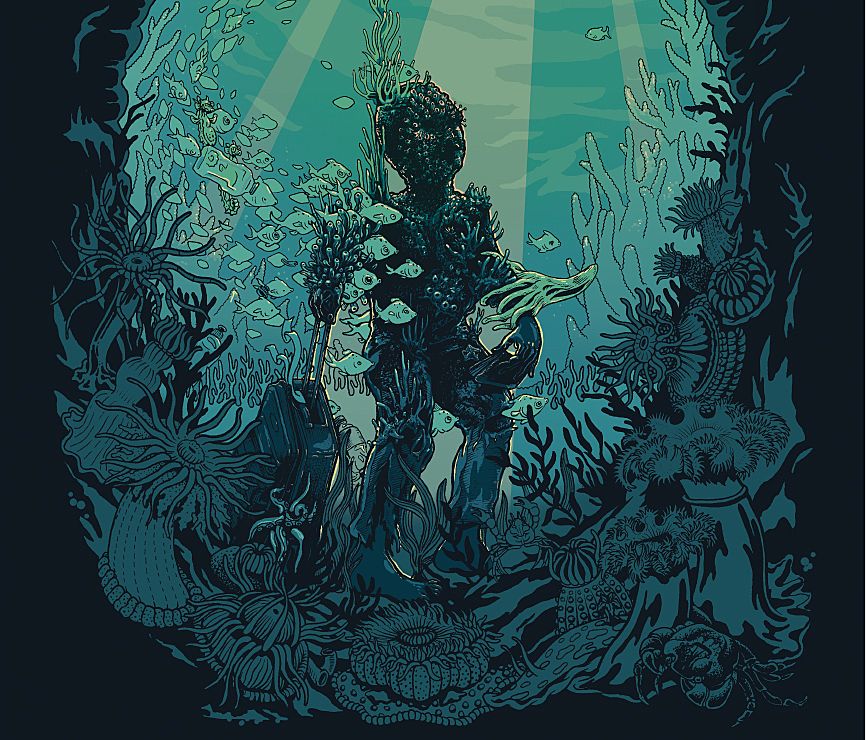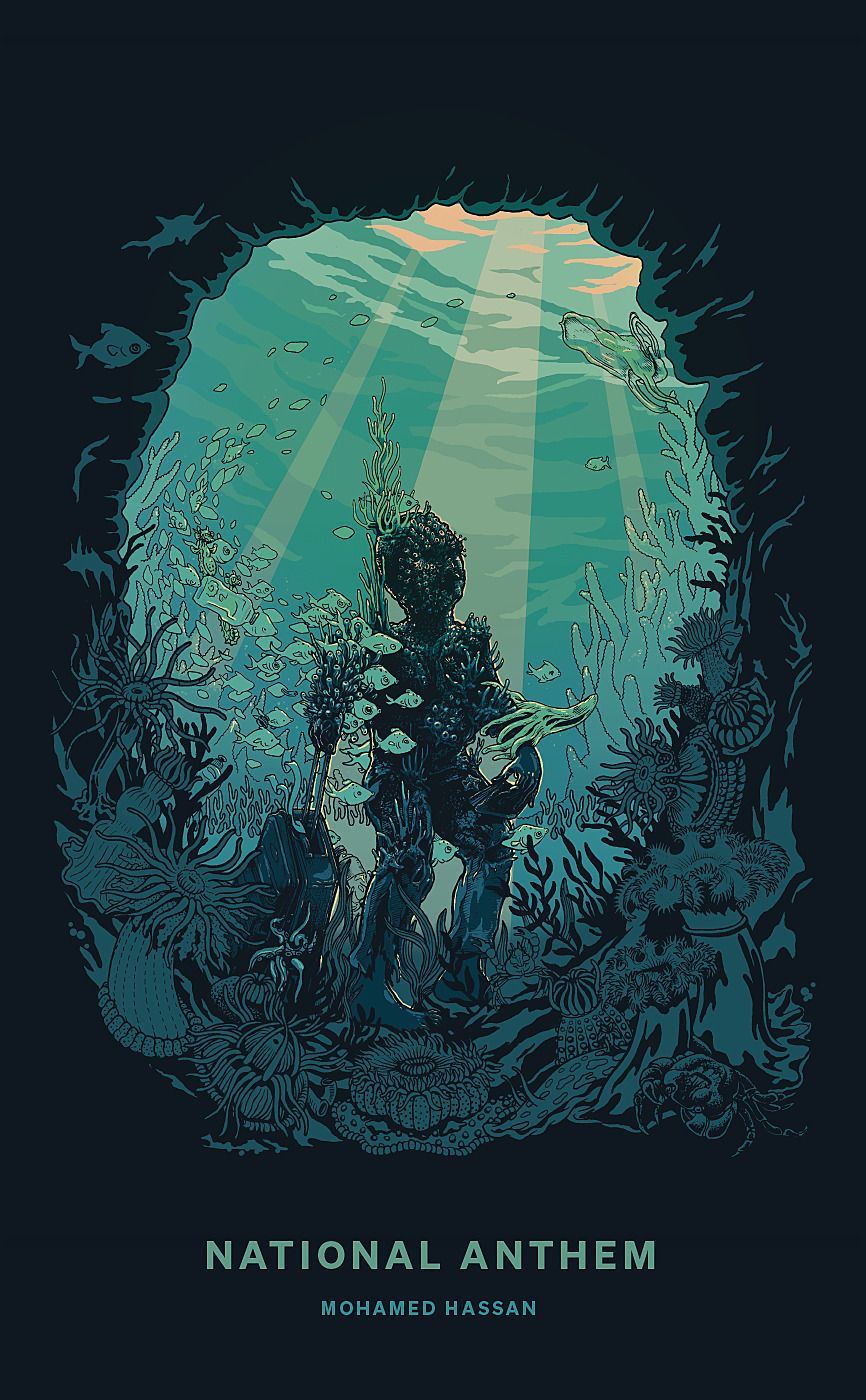The Other Side of Us: A Review of National Anthem
Finding 'us' in Mohamed Hassan's National Anthem, by Khadro Mohamed.
You look so much like us.
National Anthem, a collection of short poems by award-winning poet Mohamed Hassan, opens with this line. Simple, brief. Yet as soon as my tongue wraps around the syllables a series of images bubbles to the surface and creates an uncomfortable feeling of déjà vu.
The urge to roll my eyes is one I can’t ignore.
This sentence, and many of its variations, is all too familiar to me. Uttered in passing as a backhanded compliment that is not given much thought once spoken. Usually uttered by strangers who feel an urge to make me aware of how close I’ve skated to the line of ‘acceptance’. I’m too close for comfort.
It’s usually said with a smile – perhaps a nod if I’m lucky. At times well meaning. But once spoken, the words hang in the air, the weight of them heavy. Hard to escape. Because regardless of the intent, this sentence often creates a sense of dysphoria in the recipient. This sentence is intended to alienate. To make it known that I’ll forever be considered an ‘other’.
You look so much like us.
And it’s with this very first line of National Anthem that one thing becomes very clear: National Anthem is for the foreigner.
The foreigner who has a tongue slathered in a thick New Zealand accent; the one with parents who don’t speak English. The foreigner who has a New Zealand passport, who’s in love with the beautiful mountain ranges that bless our landscapes, the foreigner who’s only ever known this country, this land, but is still somehow denied a piece of it. The foreigner who will forever come close, but will never be.
National Anthem is littered with similar single one liners – painful, angering and beautiful. A reminder to the foreigner – who may or may not have fallen into a daydream of New Zealand’s sanitised image – that their identity is something to be questioned and pulled apart by the dominant culture. To be scrutinised. To be picked up and later thrown aside.
The other – the foreigner – is not fully home anywhere in New Zealand. A harsh and inescapable reality for many of us.
Hassan’s own struggle with identity is revealed throughout the pages, as he too scrutinises and challenges his own place in the dominant culture of New Zealand. His struggle with his native language, his religion and the challenging relationship he has with Kiwi-ness. “I’ve been throwing myself into spaces I didnt belong since puberty, my presence a tiny rebellion to every ‘go back to where we colonised you’.” It doesn’t take long for the foreigner to find solace in Hassan himself.
National Anthem soon becomes an extension of me.
This is the part of me that still, despite everything, wants so badly to be part of the ‘us'
As someone who has grown up straddling the line of Kiwi-ness and Somali-ness, National Anthem feels a lot like home. A place of understanding and one that causes a laugh of recognition to bubble out from me. One that makes me angry, but also creates a sense of belonging. Because as I read, I quickly realise that Hassan and I have lived the same life. Despite being worlds apart.
The words he’s heard were also barrelled at me. The feeling of rejection is hard to escape. The inescapable need for acceptance. Somewhere to truly call home.
The foreigner, no matter where they originate, has lived many of the same experiences as Hassan. As myself. Because, really, what place does a black woman in a hijab have in New Zealand?
*
National Anthem is multilayered. While solace is found, it is fleeting, particularly in the final pages of the book. At that point instead I feel scrutinised.
Another part of me, a voice that I have tried so hard to silence, quickly comes to light. This is the part of me that still, despite everything, wants so badly to be part of the ‘us.’ The exclusive ‘us’, the ‘us’ that has made it clear time and time again that it has no room for me.
In the final pages of National Anthem Hassan describes a scene where someone mistakes him for being white.
The first time I got mistaken for a white man, I feel a rush of joy / lurching from my gut. I have finally won the right to invisibility.
Here, he feels immense happiness at the mistake. But the joy is fleeting and quickly replaced by the weight of reality. The mirage is broken by the sound of his own name. The privilege he almost had, snatched from beneath his feet. I connect with the words in these pages immensely. It’s a reminder to myself and those reading that the road of unlearning is long, and I haven’t quite made it as far as I once fooled myself into believing I had. But it’s also a reminder that unlearning is painful and it requires us to let go of this need for acceptance.
National Anthem continues, creating a whirlwind of emotions for the reader, and very quickly a new sense of understanding comes to the surface. A new meaning to the ‘us’ we have been excluded from in the very first sentence. The foreigner – me – gets a chance to craft a new meaning of the word. One that does not exclude, alienate and gatekeep like it once did.
An ‘us’ that does not require me to give up my culture in exchange for a uniform that is two sizes too small.
National Anthem by Mohamed Hassan is published by Dead Bird Books.


